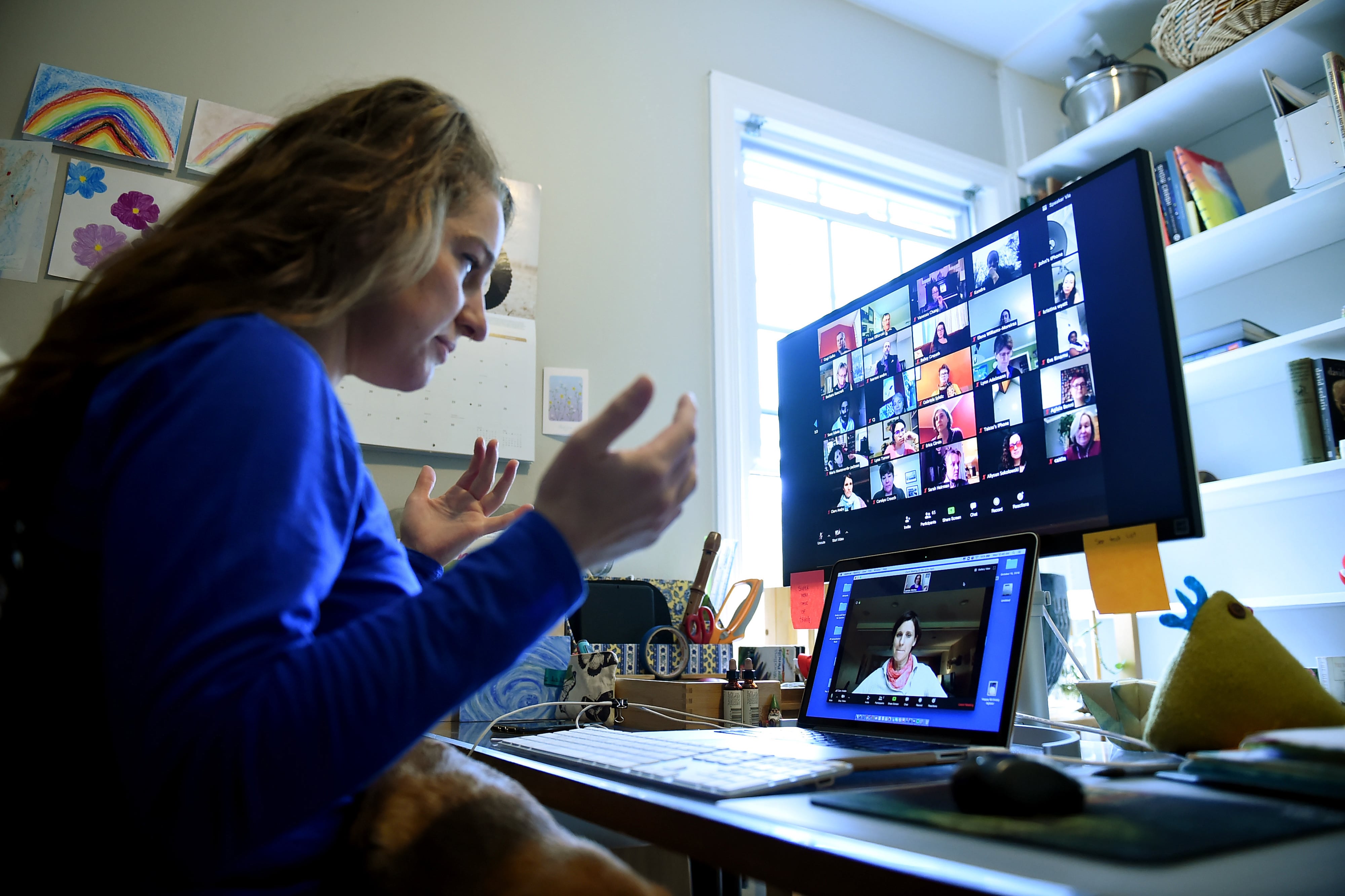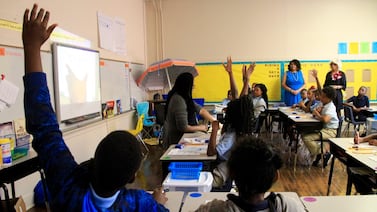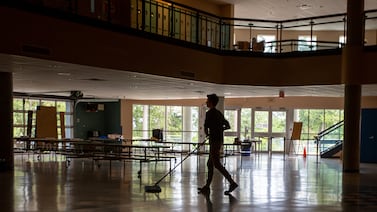This fall, Newark principals will peer into classrooms through computer screens to watch teachers give online lessons.
The virtual visits reflect the need to update classroom observations for the remote-learning era. Now, the district will judge teachers in part on the quality of their live video lessons and the online assignments they post. The online observations, which are new this school year, carry significant weight.
Observations are the primary factor in teachers’ annual ratings, which help determine whether new teachers earn tenure and veterans keep their jobs. Because of the high stakes, the Newark Teachers Union negotiated with the district to revamp how administrators score teachers during observations to account for the constraints of online instruction.
Observing lessons also gives educators valuable feedback, officials say. The support might be welcome for the many Newark teachers who only dipped their toes in virtual instruction during the chaotic shift to remote learning this spring, and are now giving daily video lessons for the first time.
With the ongoing pandemic forcing many students to continue learning from home, Newark is one of many school districts adapting its teacher evaluation system for online learning, said Shannon Holston, director of teacher policy at the National Council on Teacher Quality.
“Observation and feedback is always important for our teachers,” she said, adding that such support may be even more critical now. “Many of them are embarking on a new version of teaching.”
New Jersey law requires teachers to be evaluated each year. Teachers who earn low ratings over multiple years without improving can lose tenure or their jobs. Still, the vast majority of teachers statewide receive favorable ratings, and Newark rated about 93% of its teachers “effective” or “highly effective” in the 2018-19 school year.
After school buildings closed in March, New Jersey made several emergency changes to its evaluation rules.
Student test scores, which accounted for a tiny portion of teachers’ ratings, could not be used because the spring exams were canceled. The state allowed districts to skip evaluations for tenured teachers, and to rate non-tenured teachers based entirely on classroom observations that occurred before the closures.
This school year, the rules are different. Now, the state wants districts to observe all teachers. The observations count for 85% of teachers’ annual ratings.
Observations should occur in person at any schools where students have returned to classrooms at least part-time, according to new guidelines the state issued last month. Districts that have postponed in-person learning, as Newark has, can ask teachers to compile “portfolios” with evidence of their work in place of observations. The evidence can include recorded lessons, written student work, or observations of live video lessons.
However, the Newark Teachers Union opposed having teachers create portfolios, which some educators considered a daunting task amid all their other remote-teaching duties.
“You heard about Portfolios?” the union said on Facebook. “They are Dead On Arrival.”
The district agreed not to use portfolios, union officials said. Instead, administrators will rate teachers’ online lessons using a scoring guide called “the framework for effective teaching.”
A committee of union and district representatives spent the past year revising the framework, which tells administrators what to look for when observing teachers. Last month, the committee reconvened to adapt the new framework for virtual observations. The changes involved removing some effective teaching practices that could be hard to pull off remotely, such as getting students to assist their peers.
The union worked to “strip out any indicator from the evaluation framework that could not be accurately measured during remote learning,” Newark Teachers Union President John Abeigon said in a message to members on Friday, adding that “we are proud to report that the district has begun sharing this revised framework with administrators.”
The union also helped create new guidelines that spell out what effective teaching can look like in a virtual classroom.
For instance, a teacher might ask students to work together in online “breakout rooms,” which allow small groups to meet over video. The teacher could assign students who are struggling with the same concept to one breakout room so she can teach them a brief lesson, the guidelines say. The teacher might also pop in and out of the virtual meeting spaces to check on the groups, and call everyone back together if she notices a common misunderstanding.
During online lessons, teachers can display their screens so students can see examples of high-quality work, the guidelines say. Teachers can also post prompts that spark rich written discussions among students.
As during last school year, the state has prohibited using students’ state test scores in teacher evaluations. However, 15% of each teacher’s rating will still be based on student learning as measured by “student growth objectives.” These learning goals, which are set by teachers and administrators, can include a certain percentage of students passing a particular test or moving to a higher reading level.
Newark is still working to set those goals, union officials said. One challenge is that students did not take year-end assessments this spring, complicating efforts to determine reasonable learning goals for this year.
Schools districts nationwide have negotiated with local teachers unions to revise their contracts and evaluation policies in the wake of this year’s school closures. About half of the 20 district-union agreements analyzed by the National Council on Teacher Quality allow for online teacher observations.
However, some also set limits on virtual observations. For instance, every Seattle teacher will be rated “proficient” in online instruction unless a “preponderance of evidence” suggests otherwise. And administrators in Broward County Public Schools can conduct “virtual walkthroughs” but cannot use them to evaluate teachers.
More changes to teacher evaluations are likely as the pandemic — and remote learning — drag on, said Holston, the policy analyst at the National Council on Teacher Quality.
“We hope it doesn’t last forever,” she said, “but who knows.”






